
BY DR. RAVINDER PALL SAINI
INDIAN FOREST SERVICE ( RETIRED)
MEMBER, BOARD OF MANAGEMENT,
FOREST RESEARCH UNIVERSITY, DEHRADUN
DEHRADUN, 5 JUNE 2023:
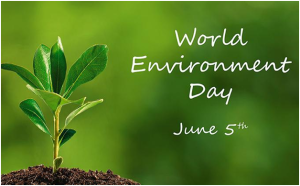
Golden Jubilee of World Environment Day Celebrations:
Piloted by the United Nations Environment Programme (UNEP) and convened annually on 5 June since 1973, World Environment Day is the biggest global platform for environmental public outreach and is celebrated by millions of people across the world. In 2023, it is being hosted by Côte D’Ivoire (Ivory Coast).
“There is sufficiency in the world for man's need but not for man’s greed”. ~~~~~~~~~~~~~Mohandas K. Gandhi.
“Nature provides a free lunch, but only if we control our appetites”. ~~~~~~~~William Ruckelshaus, Business Week, 18 June 1990.

History:
World Environment Day is commemorated across the globe to honour and recognize the importance of nature, environment, and ecology that support all life forms. Founded back in 1972 at the Stockholm Conference on Human Environment organized by the United Nations; world environment day is one of the largest events celebrated by over 175 countries across the globe. The inception of world environment day celebration was on 5 th June1974, and the event was hosted by the United States with One Earth theme. At a time when the world is suffering the aftermath of covid pandemic, it is worthy to shed light on the destruction and obliteration caused by human activities to our environment and the enervating state of our earth.
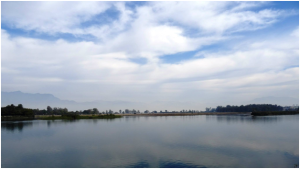
Obligation To Participate:
Time is running out, and nature is in emergency mode. To keep global warming below 1.5°C this century, we must halve annual greenhouse gas emissions by 2030. Without action, exposure to air pollution beyond safe guidelines will increase by 50 per cent within the decade and plastic waste flowing into aquatic ecosystems will nearly triple by 2040.
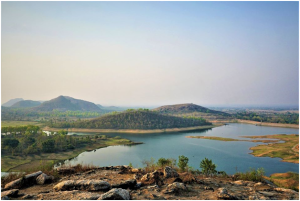
Theme for 2023:
This year’s World Environment Day will be shown with the theme #BeatPlasticPollution to refocus attention on solutions to plastic pollution. The day serves as a notice that people’s actions concerning plastic pollution are significant.
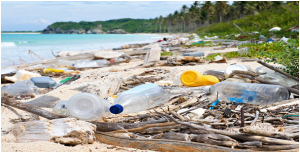
Plastic Danger for Climate Change:
Plastic is largely produced from oil and gas, both of which are fossil fuels. The more plastic we make, the more fossil fuel is required, the more we increase the climate crisis. Also, plastic products initiate greenhouse gas emissions across their whole lifecycle. If no action is taken, greenhouse gas emissions caused by plastic could account for 19% of the Paris Agreement’s total allowable emissions in 2040 to limit warming to 1.5 degrees Celsius. (Source:UNEP).
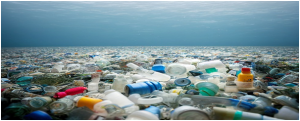
We need urgent action to address these pressing issues-
World Environment Day 2023 is a reminder that people’s actions on plastic pollution matters. The steps governments and businesses are taking to tackle plastic pollution are the consequence of this action. The 2023 World Environment Day campaign #BeatPlasticPollution calls for global solutions to combat plastic pollution menace effectively and collectively all over the world.

Earth’s Biodiversity:
Biodiversity underlines life on Earth and implies to the variety found in biota from genetic makeup of plants and animals to our cultural diversity on earth.
Importance of Biodiversity:
People depend on biodiversity in their daily lives, in ways that are not always apparent or appreciated. Human health ultimately depends upon ecosystem products and services (such as availability of fresh water, food, and fuel sources) which are requisite for good human health and productive livelihoods. Biodiversity loss can have significant direct human health impacts if ecosystem services are no longer adequate to meet social needs. Indirectly, changes in ecosystem services affect livelihoods, income, local migration and, on occasion, may even cause political conflict.
Additionally, biophysical diversity of microorganisms, flora and fauna provides extensive knowledge which carries important benefits for biological, health, and pharmacological sciences. Significant medical and pharmacological discoveries are made through greater understanding of the earth's biodiversity. Loss in biodiversity may limit discovery of potential treatments for many diseases and health problems.
Facts About Plastic Pollution:
Some 11 million tons of plastic waste flow annually into oceans. This may triple by 2040.
More than 800 marine and coastal species are affected by this pollution through ingestion, entanglement, and other dangers.
A shift to a circular economy can reduce the volume of plastics entering oceans by over 80 per cent by 2040; reduce virgin plastic production by 55 per cent; save governments US$70 billion by 2040; reduce greenhouse gas emissions by 25 per cent; and create 700,000 additional jobs – mainly. (Source: UNEP)
Combating plastic pollution by 2024 Globally:
Last year, 175 UN Member States endorsed a historic resolution to end plastic pollution and forge an international legally binding agreement that will be ready by the end of 2024. This is the most significant environmental multilateral deal since the Paris accord. It is an insurance policy for this generation and future ones, so they may live with plastic and not be doomed by it.
While plastic has many valuable uses, we have become addicted to single-use plastic products — with severe environmental, social, economic and health consequences.
Around the world, one million plastic bottles are purchased every minute, while up to five trillion plastic bags are used worldwide every year. In total, half of all plastic produced is designed for single-use purposes – used just once and then thrown away.
Plastics including microplastics are now ubiquitous in our natural environment. They are becoming part of the Earth's fossil record and a marker of the Anthropocene, our current geological era. They have even given their name to a new marine microbial habitat called the ‘plastisphere’.
Chronology of Plastic Pollution:
From the 1950s to the 1970s, only a small amount of plastic was produced, and as a result, plastic waste was relatively manageable.
However, between the 1970s and the 1990s, plastic waste generation more than tripled, reflecting a similar rise in plastic production.
In the early 2000s, the amount of plastic waste we generated rose more in a single decade than it had in the previous 40 years.
Today, we produce about 400 million tons of plastic waste every year. (Source: UN).
Most plastic items never fully disappear; they just break down into smaller and smaller pieces. Those microplastics can enter the human body through inhalation and absorption and accumulate in organs. Microplastics have been found in our lungs, livers, spleens and kidneys, A study recently detected microplastics in the placentas of new-born babies. The full extent of the impact of this on human health is still unknown. There is, however, substantial evidence that plastics-associated chemicals, such as methyl mercury, plasticizers, and flame retardants, can enter the body and are linked to health concerns.

DEFAET PLASTIC POLLUTION COLLECTIVELY:
Governments, cities, and towns:
Act, commit and set new norms and standards. Governments can catalyze change on a global, regional, and local scale.
While resolutions must engage every sector, governments and local authorities need to drive change, introduce laws to reduce the production of harmful and unnecessary plastics, incentivize sustainable business practices and invest in better waste management infrastructure.
Business and finance:
Design out waste by eliminating and substituting unnecessary and hazardous plastic production and packaging, especially single-use plastic.
Stakeholders can play a strategic role in marshaling finance and setting standards for businesses and industries to move away from harmful plastic production toward circular economies on plastics.
People and communities:
Individual and community actions reinforce the systemic change needed to transition to a less plastic-dependent economy.
NGOs, faith organizations and community groups are powerful foundations of change in the world. We can all use our voice and choices to set in motion a change much needed.
Ending plastic pollution by circular economy:
This can be completed by accelerating three key shifts – reuse, recycle, and reorient and diversify – and actions to deal with the legacy of plastic pollution.
Reuse refers to the transformation of the ‘throwaway economy’ to a ‘reuse society’ where reusing plastic products makes more economic sense than throwing them away. The report highlights the importance of accelerating the recycling market for plastic recycling by ensuring that recycling becomes a more profitable venture.
Reorienting and diversifying refer to shifting the market towards sustainable plastic alternatives, which will require a shift in consumer demand, regulatory frameworks, and costs.
The report highlights that these solutions are available now and that systems change, underpinned by the necessary regulatory instruments, will result in a range of economic benefits, and reduce damage to human health, the environment, and the climate.
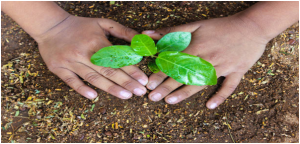
Global Tourism Plastics Initiative:
The Initiative unites the tourism sector behind a common vision to address the root causes of plastic pollution. It enables businesses, governments, and other tourism stakeholders to take concerted action, leading by example in the shift towards circularity in the use of plastics. It acts as a tourism sector interface of the New Plastics Economy Global Commitment. It was developed within the framework of the Sustainable Tourism Programme of the One Planet network and is led by UNEP and the World Tourism Organization (UNWTO), in collaboration with the Ellen MacArthur Foundation.
Overcoming of Plastic Pollution:
A systems change is needed to address the cause of plastic pollution. It combines reducing the most problematic and unnecessary plastic uses with three market shifts – Reuse, Recycle, and Reorient and Diversify – and actions to deal with the plastic pollution legacy.
“We never know the worth of water till the well is dry”.
~~~~~~~Thomas Fuller, Gnomologia, 1732

Advertisement:



















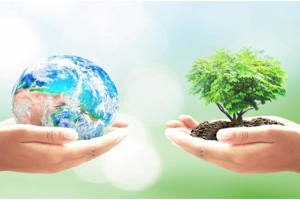








Add Comment